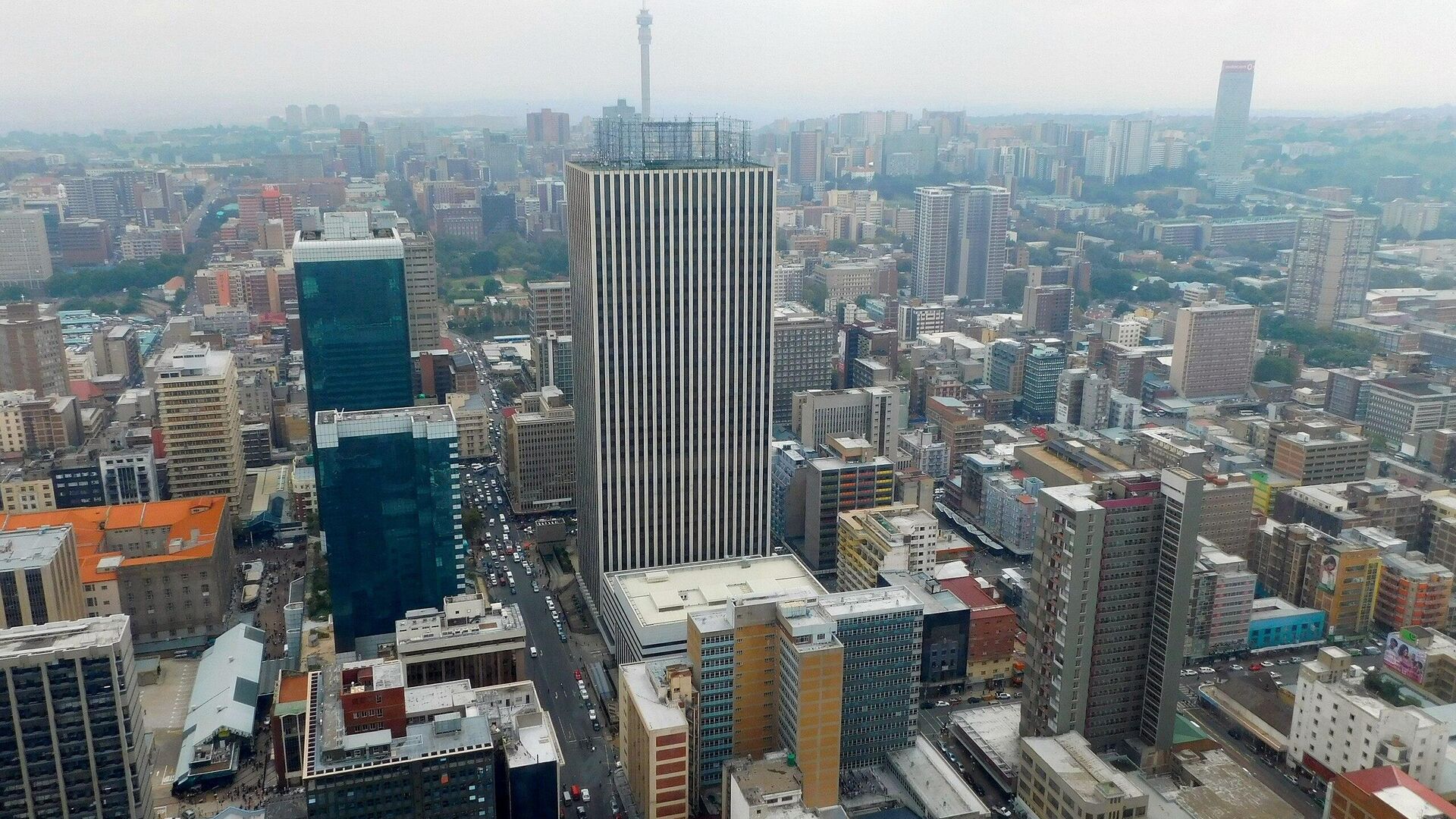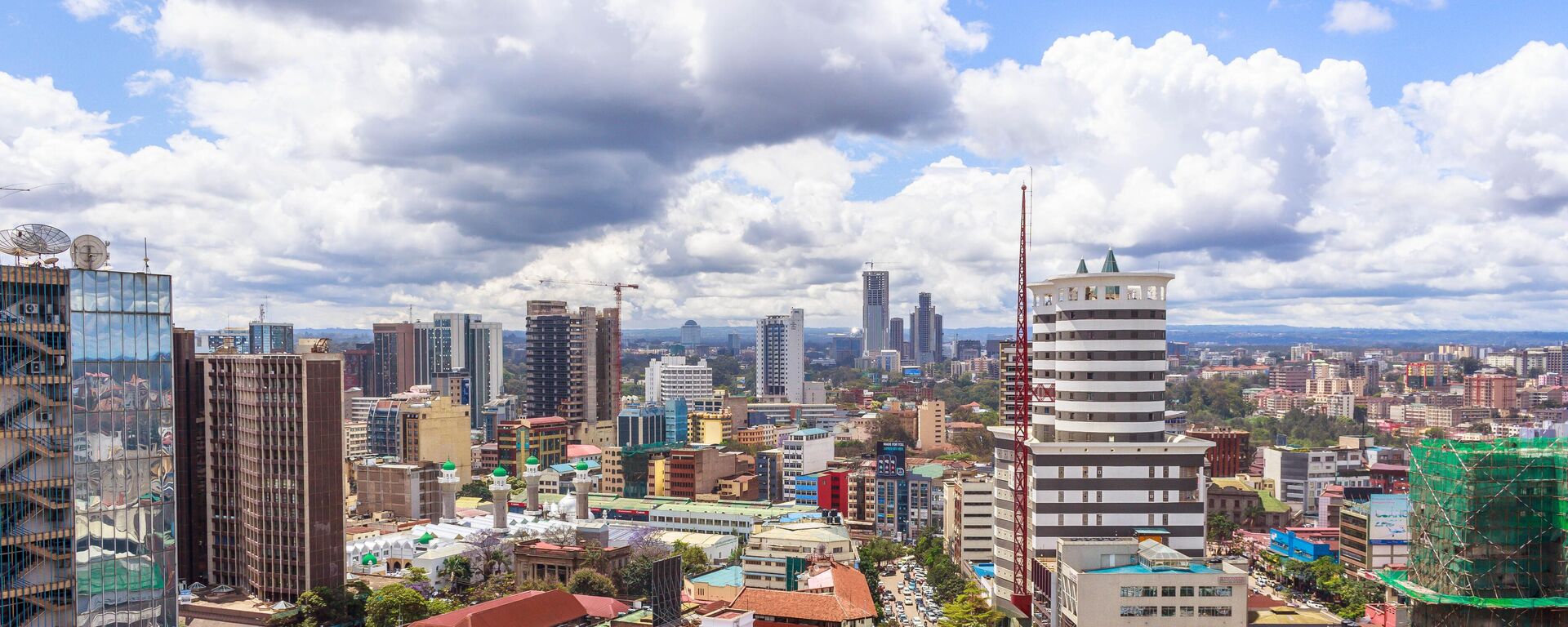https://en.sputniknews.africa/20230507/african-free-trade-area-could-lift-up-to-50-mln-people-out-of-extreme-poverty-imf-says-1059092547.html
African Free Trade Area Could Lift up to 50 Mln People Out of Extreme Poverty, IMF Says
African Free Trade Area Could Lift up to 50 Mln People Out of Extreme Poverty, IMF Says
Sputnik Africa
The African Continental Free Trade Area (AfCFTA), created in 2021, is the largest free trade agreement in the world by number of countries and population, covering 1.4 billion people.
2023-05-07T12:58+0200
2023-05-07T12:58+0200
2023-08-03T10:48+0200
sub-saharan africa
west africa
north africa
east africa
central africa
southern africa
international monetary fund (imf)
african continental free trade area (afcfta)
economy
international
https://cdn1.img.sputniknews.africa/img/07e7/05/07/1059092725_0:241:2560:1681_1920x0_80_0_0_328e9c70f8e787a13b7a3392e6745b41.jpg
Africa’s continent-wide free trade area, if successfully implemented, could accelerate economic growth and enhance living standards at a time of rising geopolitical tensions and climate change, the International Monetary Fund said in its "Trade Integration in Africa – Unleashing the Continent’s Potential in a Changing World" report.According to the IMF, for a trade zone to be successful, it must be supported by a number of reforms, such as large cuts in tariff and nontariff trade barriers among African nations when the treaty becomes fully operational by 2030. Combined with additional reforms aimed at the trade environment, such as improvements in transport and telecommunication infrastructure, access to finance, and domestic security, it could increase the flow of trade between African countries by more than half and raise the standard of living of African people.The report also notes that in a scenario of broad-based trade reforms, combining the implementation of AfCFTA with improvements in the trading environment, the composition of trade would also change to include more sophisticated goods. On May 1, the IMF warned that Africa could suffer a permanent economic blow if tensions split the global economy into opposing trade blocs around the US and China. According to the organization, sub-Saharan Africa could see a 4% decline in gross domestic product after 10 years under a "severe version of this bipolar world."Earlier, the Mo Ibrahim Foundation predicted that Africa will be the fastest-growing regional economy in the world by 2027 in its annual report titled "Global Africa. Africa in the World and the World in Africa." According to the report, based on the IMF data, Africa’s GDP growth rate should outstrip the global average in each of the next five years, being second only to Asia.
https://en.sputniknews.africa/20230501/africa-to-become-worlds-fastest-growing-economy-mo-ibrahim-foundation-estimates-1058970190.html
west africa
north africa
east africa
central africa
southern africa
Sputnik Africa
feedback@sputniknews.com
+74956456601
MIA „Rossiya Segodnya“
2023
Maxim Grishenkin
https://cdn1.img.sputniknews.africa/img/07e7/0a/17/1063018107_0:0:1104:1103_100x100_80_0_0_03090c85a11f5d2e8a19cf1d989443c9.jpg
Maxim Grishenkin
https://cdn1.img.sputniknews.africa/img/07e7/0a/17/1063018107_0:0:1104:1103_100x100_80_0_0_03090c85a11f5d2e8a19cf1d989443c9.jpg
News
en_EN
Sputnik Africa
feedback@sputniknews.com
+74956456601
MIA „Rossiya Segodnya“
Sputnik Africa
feedback@sputniknews.com
+74956456601
MIA „Rossiya Segodnya“
Maxim Grishenkin
https://cdn1.img.sputniknews.africa/img/07e7/0a/17/1063018107_0:0:1104:1103_100x100_80_0_0_03090c85a11f5d2e8a19cf1d989443c9.jpg
the african continental free trade area, africa's economic prospects, imf estimates africa's prospects
the african continental free trade area, africa's economic prospects, imf estimates africa's prospects
African Free Trade Area Could Lift up to 50 Mln People Out of Extreme Poverty, IMF Says
12:58 07.05.2023 (Updated: 10:48 03.08.2023) The African Continental Free Trade Area (AfCFTA), created in 2021, is the largest free trade agreement in the world by number of countries and population, covering 1.4 billion people. All but one of the 55 nations (except for Eritrea) recognized by the African Union have signed to join the AfCFTA, and 46 have ratified the accord.
Africa’s continent-wide free trade area, if successfully implemented, could accelerate economic growth and enhance living standards at a time of rising geopolitical tensions and climate change, the International Monetary Fund
said in its "Trade Integration in Africa – Unleashing the Continent’s Potential in a Changing World" report.
"Greater trade openness would help countries adapt to climate change and to strengthen food security, including by improving the availability and affordability of food supplies," the report read. "More diversified and broad-based trade would reduce the impact of disruptions in specific markets and products that could result from shifts in global trade patterns."
According to the IMF, for a trade zone to be successful, it must be supported by a number of reforms, such as large cuts in tariff and nontariff trade barriers among African nations when the treaty becomes fully operational by 2030.
"More concretely, a cut in tariffs on intra-African trade by 90% and NTMs [Nontariff measures] by half could increase the median merchandise trade flow between African countries by 15% and real per capita GDP in the median country by 1.25%," the report said.
Combined with additional reforms aimed at the trade environment, such as improvements in transport and telecommunication infrastructure, access to finance, and domestic security, it
could increase the flow of trade between African countries by more than half and raise the standard of living of African people.
"If accompanied by complementary improvements in the trade environment, the median merchandise trade flow between African economies would rise by 53% and with the rest of the world by 15%, raising real GDP per capita in the median country by more than 10%," the IMF predicted. "World Bank estimates of a broadly similar growth scenario suggest that this would help 30–50 million people in Africa emerge from extreme poverty."
The report also notes that in a scenario of broad-based trade reforms, combining the implementation of AfCFTA with improvements in the trading environment, the composition of trade would also change to include more sophisticated goods.
This, in turn, would increase services exports by about 50% and also provide diversification benefits in terms of food availability and affordability, resilience to shocks such as natural disasters, including from climate change, and the ability to navigate and adapt to shocks or shifts in global trade patterns.
On May 1, the IMF warned that Africa could suffer a permanent economic blow if tensions split the global economy into opposing trade blocs around the US and China. According to the organization, sub-Saharan Africa could see a 4% decline in gross domestic product after 10 years under a "severe version of this bipolar world."
Earlier, the Mo Ibrahim Foundation predicted that Africa will be the fastest-growing regional economy in the world by 2027 in its
annual report titled "Global Africa. Africa in the World and the World in Africa." According to the report, based on the IMF data, Africa’s GDP growth rate should outstrip the global average in each of the next five years, being second only to Asia.



